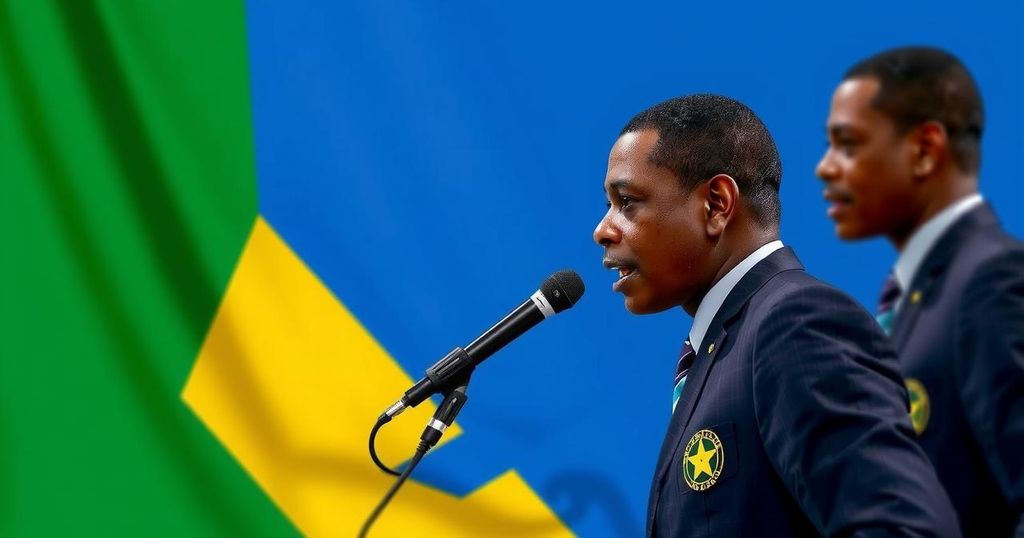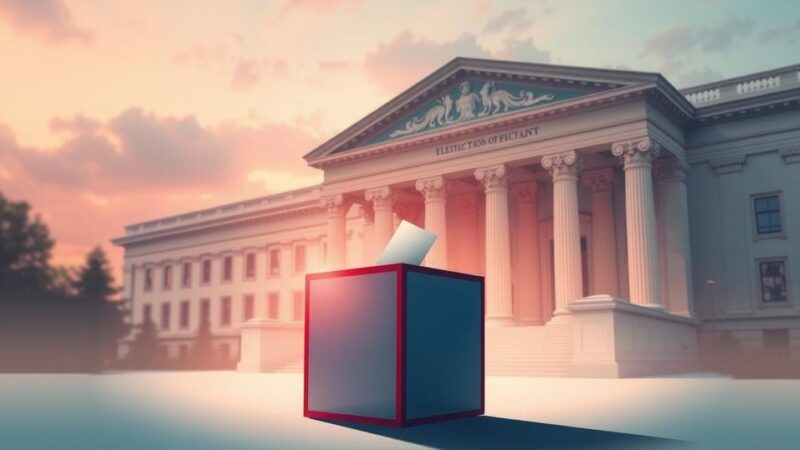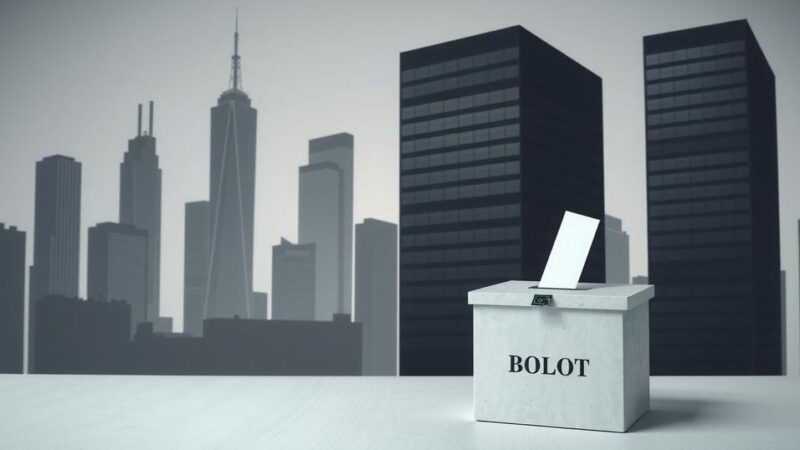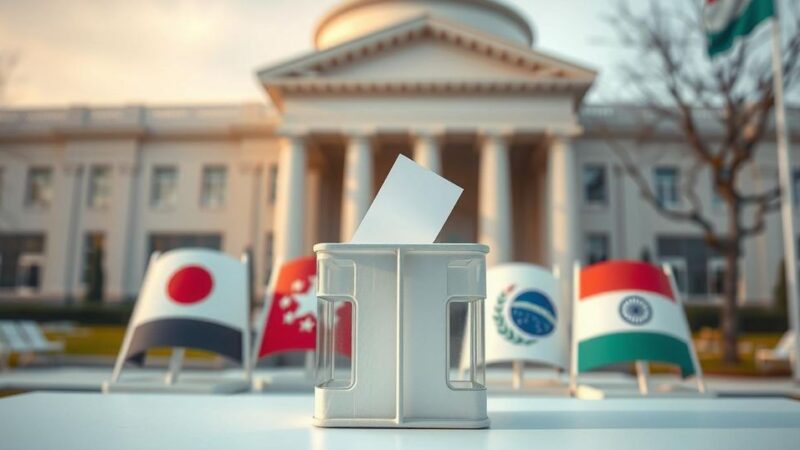Gabon held a referendum on a new constitution amidst a night curfew, aiming to end decades of dynastic rule. The junta seeks voter support for new political reforms that include term limits and eligibility criteria for presidential candidates. However, criticism remains regarding transparency and the junta’s motives. Polling suggests public support for the transitional leadership despite ongoing concerns over governance issues.
On a significant day for Gabon, the nation conducted a referendum on a new constitution, with the ruling junta asserting that this new legal framework symbolizes a pivotal change following over five decades of dynastic governance. An estimated 860,000 eligible voters received extensive messages urging them to participate, conveying that each ballot, whether marked green for “yes” or red for “no,” would carry weight. Amid a backdrop of official support for the referendum, the political atmosphere remains tense, as local media speculate on turnout and the overall transparency of the process.
Polling stations opened at 7 a.m. in the capital, Libreville, although reports indicated some delays with ballot distribution. The junta implemented a two-hour extension to the existing night curfew, now requiring citizens to remain indoors by midnight until the electoral proceedings conclude. The proposed constitution introduces restrictions on presidential eligibility, specifying that candidates must be Gabonese citizens with a Gabonese spouse, thus disqualifying the ousted leader Ali Bongo Ondimba and his offspring.
Transitional President Brice Oligui Nguema cast his vote and described the referendum as a monumental step forward for the nation. Observers noted a notably pervasive campaign promoting a “yes” vote, with Oligui’s image prominently displayed throughout Libreville. Some voters expressed faith in the junta’s intentions despite limited knowledge of the constitutional revisions. Conversely, critics contend that the document is crafted to benefit the junta and entrench authoritarian rule.
The previous regime faced accusations of corruption and flawed governance, culminating in a coup. Now, the transitional government has invited international observers to ensure credibility during the voting process. The Interior Ministry remains optimistic about the transparency of the referendum, indicating provisional results will emerge relatively quickly. This event transpired amid prevalent concerns regarding unemployment and other socio-economic challenges, with a recent poll suggesting that a significant majority believe the country is on the right track under Oligui’s leadership.
The context surrounding Gabon’s constitutional referendum lies in the nation’s controversial political history marked by prolonged dynastic rule. Following the coup d’état in August 2023 that ousted the Bongo family, the military junta led by Brice Oligui Nguema has been attempting to reshape Gabon’s political structure. This constitutional initiative aims to establish more democratic governance by limiting presidential terms and safeguarding against dynastic succession. Nevertheless, skepticism exists regarding the junta’s motives and the transparency of the electoral process after years of accusations leveled at past administrations for corruption and unsatisfactory governance.
In summary, the referendum on Gabon’s new constitution represents a critical juncture for the nation post-coup. The ruling junta advocates for the constitutional changes as a means to transition towards a democratic framework characterized by restricted presidential terms and stringent eligibility for candidates. However, widespread skepticism regarding the fairness and integrity of the process persists, compounded by allegations of self-serving governance. As the world watches the unfolding events, the outcome of this referendum will likely shape Gabon’s political landscape in the months to come.
Original Source: www.arabnews.com






